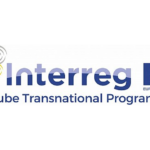EESC DEBATES WITH ORGANISED CIVIL SOCIETY IN THE MEMBER STATES ON THE EUROPEAN PILLAR OF SOCIAL RIGHTS
In March 2016, the European Commission presented an initiative for a European Pillar of Social Rights to put into motion President Juncker’s commitment to secure “a fair and truly pan-European labour market”, as a part of the on-going work on achieving a deeper and fairer Economic and Monetary Union. With the organised debates the EECS wants to ensure that European civil society is fully involved in this important initiative.
The debates were coordinated by three EESC members (‘trios’) from the country concerned, often in co-operation with the European Commission or the national Economic and Social Council. Participants came from a wide range of employers’ organisations, trade unions, academia and other civil society organisations. Close to 1800 representatives of civil society organisations participated in 28 debates.
As a basis for the discusssion a set of questions were used. The participants were asked about the most urgent economic and social challenges in Europe and the responded countries? About a need of a pillar for social rights and how it could support economic and social convergence in Europe? And what has to be done to promote an sustain social cohesion in Europe?
The majority of the Danube States mentioned a long-term unemployment, especially among the youth, the ageing population, globalisation, migration, varying performance levels within the EU and differences between the centre and periphery as the urgent economic and social challenges in their countries. All participants considered a pillar of social rights as necessary and it should be established. It could be also a stabilising factor with regard to the objective of upward social convergence.
By following the debates, the coordinating trios prepared national reports with Conclusions and/or Recommendations.
For more information and the results of the reports please follow the link:EESC Debates with organised Civil Society.pdf (837,4 Kb)
Phot credit: © EESC/shutterstock/quinky




